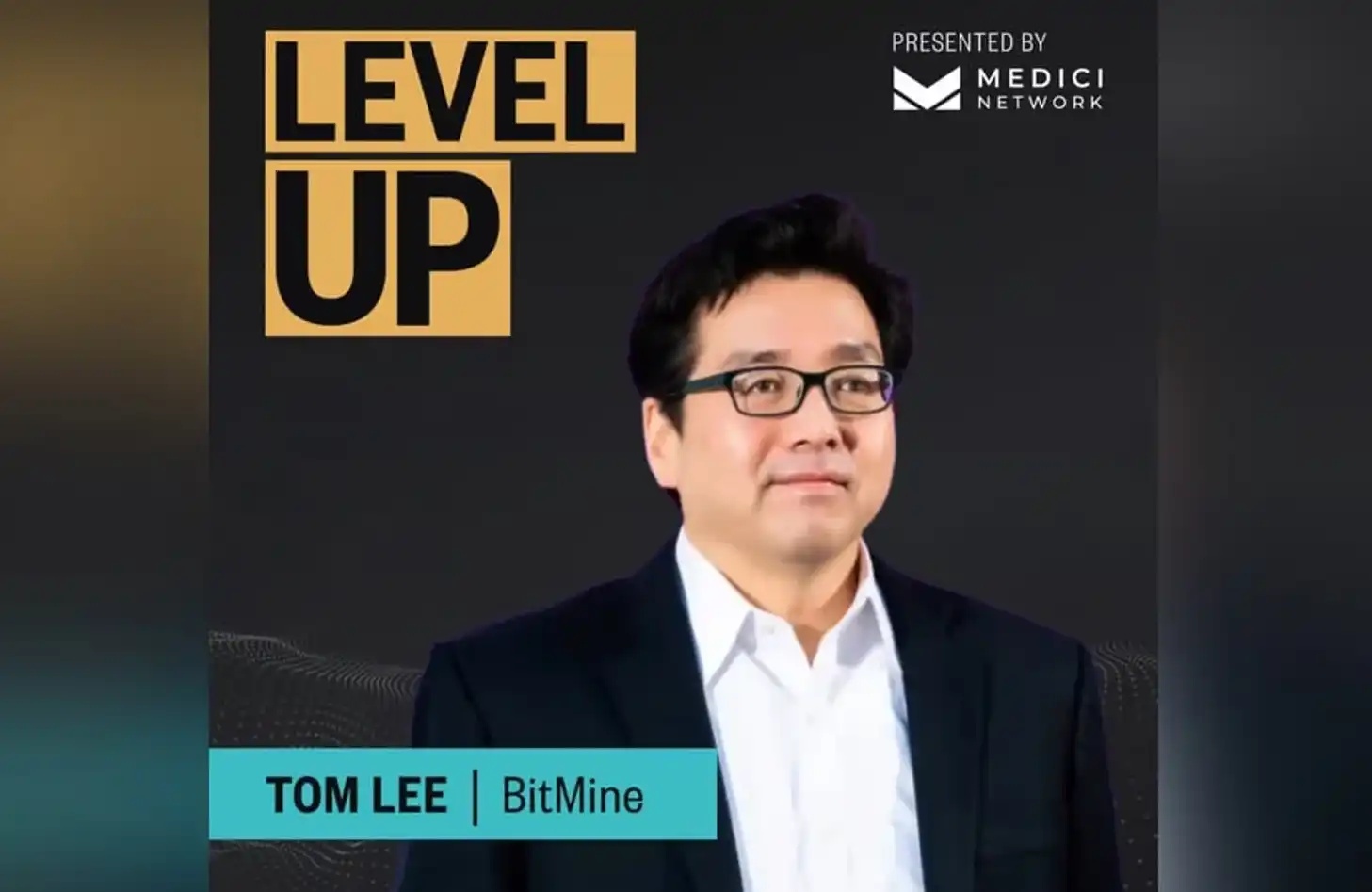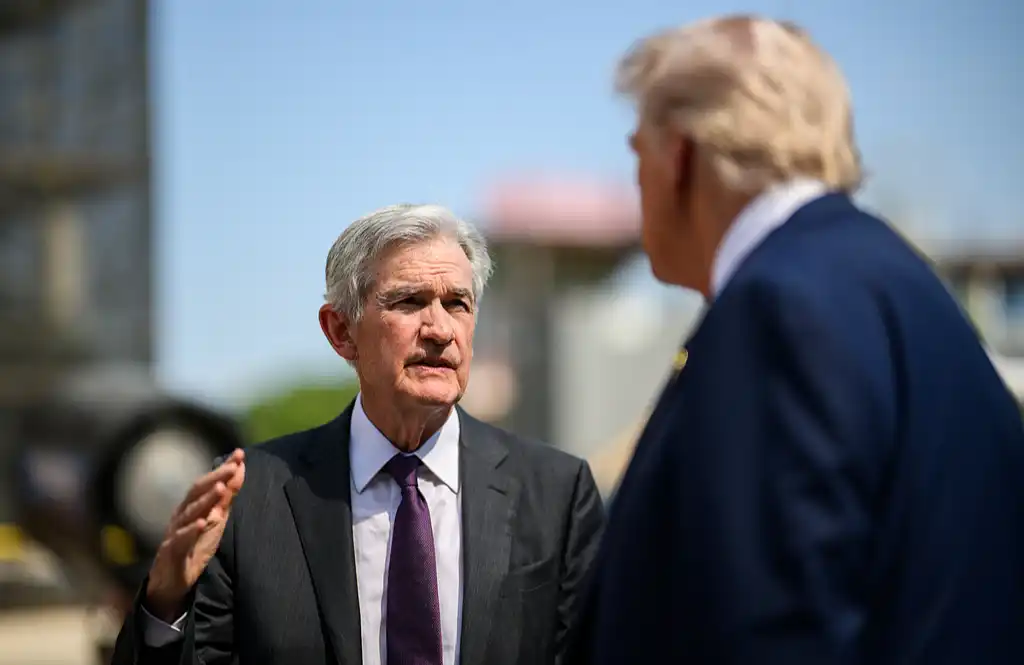Today the interviews of the 11 Federal Reserve Chair candidates began, how will Trump choose?
In early September, the personnel and power dynamics around the Federal Reserve continued to evolve rapidly.
On September 3, it was reported that the White House had made it clear that they would soon finalize the next Federal Reserve Chair selection. Treasury Secretary Scott Bennett has initiated interviews with 11 candidates, with a series of interviews starting this Friday and continuing for a week.
Meanwhile, personnel and power moves related to a "smooth transition" have been increasing. On one hand, President Trump previously removed the Director of the Bureau of Labor Statistics (BLS), raising concerns about the independence of official data. On the other hand, Federal Reserve Governor Adrienne Kugler formally submitted her resignation in early August, creating a vacancy for a new governor.
Stephen Miran, the newly appointed Federal Reserve Governor and former Chair of the White House Council of Economic Advisers (CEA), was nominated by Trump and testified before the Senate Banking Committee on September 4. Miran emphasized "monetary policy independence" in her written testimony and is expected to swiftly push for maintaining independence during the confirmation process.
With more and more actions taking place, the future has become somewhat uncertain in the eyes of the market. Who will be the next Federal Reserve Chair has now become the focal point of market attention?
Who are the 11 Candidates for Federal Reserve Chair?
According to the Fed appointment rules, the Federal Reserve Chair must be a current governor. Current Chair Powell's term will end in May 2026, while the governorship runs until January 2028. If Powell chooses to remain a governor after stepping down, Trump's range of candidates for the next Chair appointment will be limited. The confirmed list of 11 core candidates currently covers elite leaders from various sectors including the Fed establishment, former officials, and Wall Street practitioners.

Christopher Waller
Christopher Waller is the former Director of Research at the St. Louis Fed, with a strong academic background and policy implementation experience. Industry insiders and market forecasts have identified him as the top candidate. He is known for his "data-driven yet relatively flexible" style and has recently publicly supported an early rate cut, leaning towards a quicker pivot after inflation pressures ease. His series of speeches on stablecoins have been clear and consistent, advocating for private sector-led innovation under legislative and reserve regulatory frameworks.
He was also personally nominated by Trump in his first term. As a current governor known for his "rule-savvy, dovish stance," he may be Trump's most trusted successor.

Michelle Bowman
Federal Reserve Governor Michelle Bowman is seen as a representative of the "hawkish regulators." As one of the youngest members of the Federal Reserve Board, she is one of the most outspoken female hawkish representatives.
In August of this year, she proposed allowing a small number of Fed employees to hold cryptocurrency assets to enhance regulatory understanding, signaling a more "technologically neutral" approach in regulation but emphasizing price stability as a priority in monetary policy.

Philip Jefferson
Current 63-year-old Federal Reserve Vice Chair Philip Jefferson is also a popular candidate. With a strong academic and organizational background and a deep understanding of the Fed's day-to-day operations, he represents the "dovish camp." He is relatively cautious in balancing employment and inflation and is considered one of the candidates to ensure continuity of the existing framework.
It is worth noting that if elected, he would be the first African American Federal Reserve Chair in history.

Lorie Logan
Former Dallas Fed President Lorie Logan, who previously oversaw open market operations at the New York Fed, has 23 years of experience at the New York Fed, making her highly skilled in market "tactics" and crisis management. Both the 2008 financial crisis and the 2020 pandemic were handled properly under her leadership. She is seen as the "most market-savvy" central banker.

Kevin Warsh
Former Federal Reserve Governor Kevin Warsh is a candidate with experience in "crisis cycles" and "reform issues." As the heir to Estée Lauder's fortune, he became the youngest Fed governor in history at the age of 35. After leaving the Fed, he researched monetary policy reform at the Hoover Institution at Stanford.
His deep connections in Washington and Wall Street are also seen as advantages, and he was considered a popular candidate as early as the last round of appointments in 2017.

James Bullard
Former St. Louis Fed President James Bullard is known for his ability to make early judgments on inflation turning points and his strong communication skills with academia and the market. As early as 2021, he began warning the market of inflation risks. However, due to his independent personality and views, he has maintained a relatively "outlier" voting record at the FOMC.

Kevin Hassett
White House National Economic Council Director Kevin Hassett has a close relationship with President Trump. Due to his position, he analyzes economic data for Trump almost daily and has even been referred to as Trump's "economics professor."
Their policy ideas align, making him a candidate with very high "political trustworthiness." His weakness lies in the lack of experience working within the central bank.

Marc Sumerlin
Mark Sumerlin previously came from the economic team of the George W. Bush era, serving as the Deputy Director of the National Economic Council at that time. However, he proposed the most radical Fed reform plan, advocating for a "process redesign" of the FOMC at both the communication and institutional levels, positioning him as a "reformer within the establishment."

Larry Lindsey
Larry Lindsey has bipartisan experience, having served as the chief economic advisor to President George W. Bush and as a Federal Reserve Governor during the Clinton administration. He excels in coordinating policies between the White House, the central bank, and the market, accurately predicting the bursting of the dot-com bubble. However, at 70 years old, he faces market skepticism regarding whether his understanding may be "disconnected" from modern monetary policy tools.

David Zervos
Jefferies' Chief Market Strategist David Zervos belongs to the "frontline of the market," known for his frank style, sharp comments, and unique strategic perspective. He has a keen market sense, worked at the New York Fed in the 1990s, and maintains close communication with the Fed.

Rick Rieder
Rick Rieder, Chief Investment Officer of BlackRock Global Fixed Income, may be the candidate with the most extensive asset management experience in real-world situations, overseeing over $4 trillion in assets at BlackRock. The assets he manages have gone through multiple economic crisis cycles.
Recently, his media stance has been notably biased towards "accommodative policies and rising risk appetite." If he transitions to a "policy maker," the transferability of his "market experience-policy game" and potential conflicts of interest will be collectively examined. Furthermore, the market is concerned about the potential "conflicts of interest" that may arise in his transition from fund management to policy making.

Three Cryptocurrency-Friendly Candidates?
The most popular candidate, Christopher Waller, also has the most systematic stance on the use cases of "Cryptocurrency - Stablecoin - Payment Innovation."
Waller's scrutiny of cryptocurrency has been almost harshly calm from the beginning. He once likened most cryptocurrencies to "baseball cards" — having no intrinsic value, with prices depending on a fragile balance of emotion and confidence. For this highly volatile speculative asset, he insists on "letting the market bear the consequences," and taxpayers should not foot the bill for investment failures.
On the topic of stablecoins, Waller showed a different side. As early as 2021, when stablecoins were still only seen as a derivative of cryptocurrencies, he saw the potential of stablecoins. He has repeatedly emphasized that "stablecoins can improve payment efficiency, introduce international competition and speed," provided that Congress perfects legislation and establishes sufficient and transparent reserve and custody rules. Subsequently, in his many speeches in 2024 and 2025, he repeatedly urged Congress to legislate to prevent runs and payment system disruptions, allowing stablecoins to truly become a secure "synthetic dollar."
Waller has always insisted that innovation should be led by the private sector, and the government's role is to "build highways" — clearing infrastructures like FedNow are lanes, and the driving force should be the power of market competition. However, he also warned that non-bank payment institutions and decentralized platforms, once unregulated, may accumulate leverage, create bubbles, and ultimately endanger financial stability.
On the other hand, Rick Rieder and David Zervos are different from Waller. In addition to theoretical and policy assistance, they have a considerable level of interaction with the cryptocurrency industry. Rick Rieder's involvement is more reflected in the management of funds and industry activities. As the Global Chief Investment Officer of Fixed Income at BlackRock, he has not only participated in activities related to projects such as Circle and Bullish but has also been in contact through BlackRock's channels and supported some layout regarding stablecoins and crypto credit. From public documents, it can be seen that he has also participated in public market or primary market events related to cryptocurrency exchanges, stablecoin issuers, and crypto lending institutions.
David Zervos has been actively involved in and supported multiple cryptocurrency-related projects. He has invested in or supported relationships with eToro (a trading platform), Circle Internet Group (the issuer of USDC), Bullish (a cryptocurrency exchange supported by Peter Thiel, Alan Howard, etc.), and Figure Technology Solutions (a crypto mortgage lending platform), among others. In addition, he has early on supported MicroStrategy's Bitcoin purchase plan, indirectly driving the path of Bitcoin's corporate allocation.
Overall, Walle represents "institution-friendly" within the Federal Reserve system, while Zevos and Reed represent "capital-friendly" from Wall Street. If one of them becomes the chair in the future, the Fed's policy direction may, under the dual drive of "monetary easing + crypto institutionalization," pave a clearer growth path for the compliant crypto market.
Summary
Looking at this candidate list spanning academia, government, and business, it is evident that the selection of the Federal Reserve chair's successor is not just a matter of monetary policy pace but directly related to the institutional direction of the global financial market and the crypto industry. For the market, candidates from different backgrounds are expressing distinct future market directions through their identities and paths.
At the same time, observers also warn that Trump's high-frequency nominations and personnel arrangement have accumulated market concerns about the Fed's independence. If the new chair is overly seen as a "politicized" extension, it may accelerate loose monetary policy and risk appetite in the short term but also increase medium- to long-term volatility in dollar assets and institutional credibility.
For the crypto industry, regardless of who ultimately takes office, the real benefit lies not in the "friendly label" but in whether the institutionalization path can be implemented. The key to determining whether the industry can benefit from policy dividends in the medium to long term lies in how stablecoin legislation, banking integration, and the boundaries of decentralized payments are defined.
In other words, the arrival of a new chair may just be the prologue. What the market needs to pay more attention to is whether the institution truly moves towards compliance and transparency.
Welcome to join the official BlockBeats community:
Telegram Subscription Group: https://t.me/theblockbeats
Telegram Discussion Group: https://t.me/BlockBeats_App
Official Twitter Account: https://twitter.com/BlockBeatsAsia
 Forum
Forum

 Finance
Finance
 Specials
Specials
 On-chain Eco
On-chain Eco
 Entry
Entry
 Podcasts
Podcasts
 Activities
Activities
 OPRR
OPRR









